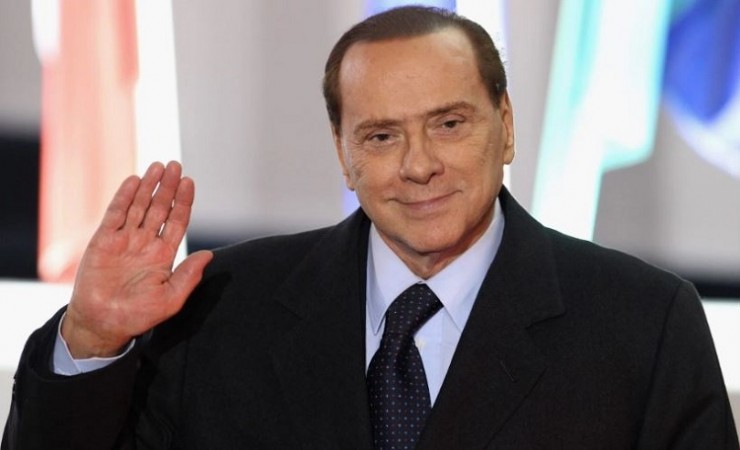
ITALY: Former Italian President Silvio Berlusconi passed away at the age of 86, today afternoon.
Mediaset pronounced his death with a smiling photo of the man on its homepage and the headline: “Berlusconi is dead.”
The billionaire media mogul had been suffering from leukaemia and recently developed a lung infection. He had last held office between 2008 and 2011 and his Forza Italia party is currently part of Prime Minister Giorgia Meloni's right-wing coalition.
All About Silvio Berlusconi : Silvio Berlusconi, the flamboyant media tycoon turned politician, left an indelible mark on Italian politics during his time as the Prime Minister and President of Italy. His leadership was marked by both achievements and scandals, making him one of the most polarizing figures in the country's history. This article delves into the life, political career, and the enduring legacy of Silvio Berlusconi.
Silvio Berlusconi was born on September 29, 1936, in Milan, Italy. He came from a middle-class family and showed an early interest in business. Berlusconi ventured into various industries, including construction, media, and television, which would later become the foundation of his immense wealth and influence.
Berlusconi founded Mediaset, a television network, in the 1970s, which soon grew to become one of Italy's largest media conglomerates. His ownership of media outlets, including television channels and newspapers, granted him significant influence over public opinion. This media empire played a crucial role in Berlusconi's subsequent political rise.
Berlusconi entered politics in the early 1990s, establishing his own political party, Forza Italia (Go Italy). He positioned himself as a champion of free-market capitalism and ran on a platform focused on reducing bureaucracy, cutting taxes, and revitalizing the Italian economy. In 1994, he became Prime Minister for the first time, forming a coalition government.
During his tenure as Prime Minister, Berlusconi implemented several reforms aimed at boosting Italy's economy. He introduced labor market reforms, tax cuts, and measures to attract foreign investment. His administration also invested in infrastructure projects and attempted to streamline bureaucracy. These policies helped spur economic growth, albeit with mixed results.
Berlusconi's time in office was marred by numerous controversies and legal troubles. He faced allegations of corruption, tax fraud, and bribery. He was embroiled in several high-profile trials, with some resulting in convictions, although many were later overturned on appeal. These legal battles fueled public skepticism about his integrity and leadership.
Silvio Berlusconi's legacy remains a subject of intense debate in Italy. Supporters credit him with revitalizing the Italian economy, introducing reforms, and championing the interests of entrepreneurs. They also emphasize his charisma and ability to connect with voters. Critics, however, highlight the controversies and scandals that plagued his political career, arguing that his personal interests often overshadowed the needs of the nation.
Russia Day June 12: Celebrating the Spirit of Unity
Kim Jong-un pledges enhanced strategic partnership with Russia